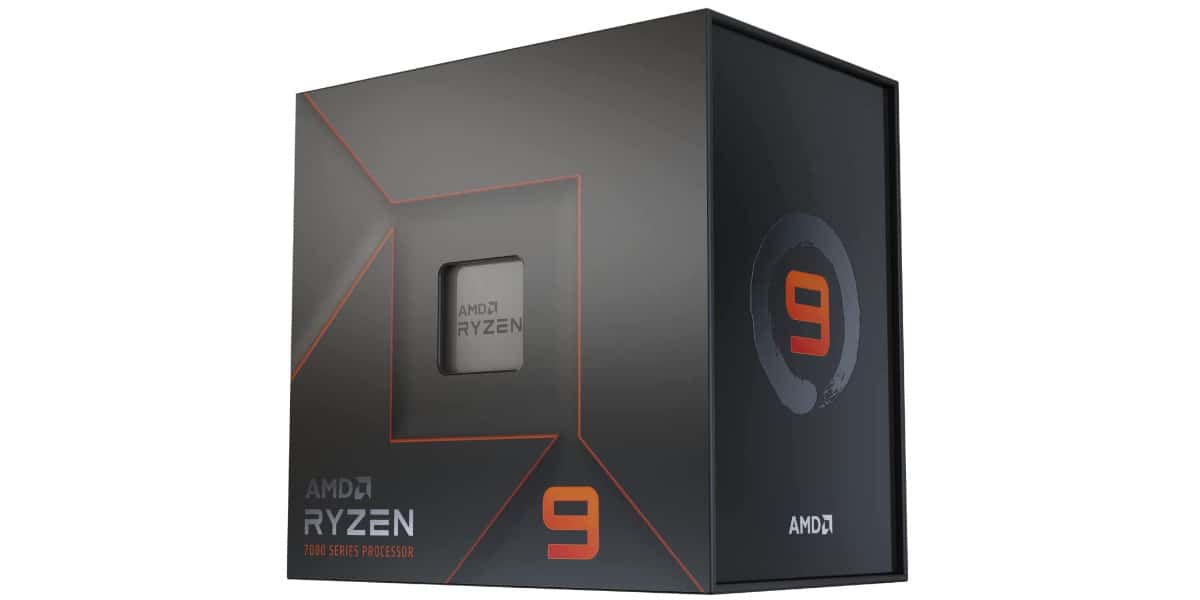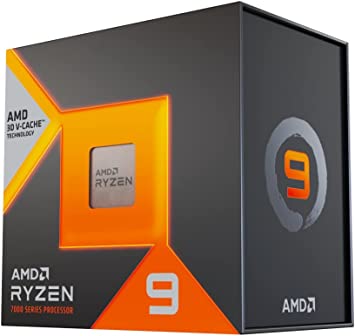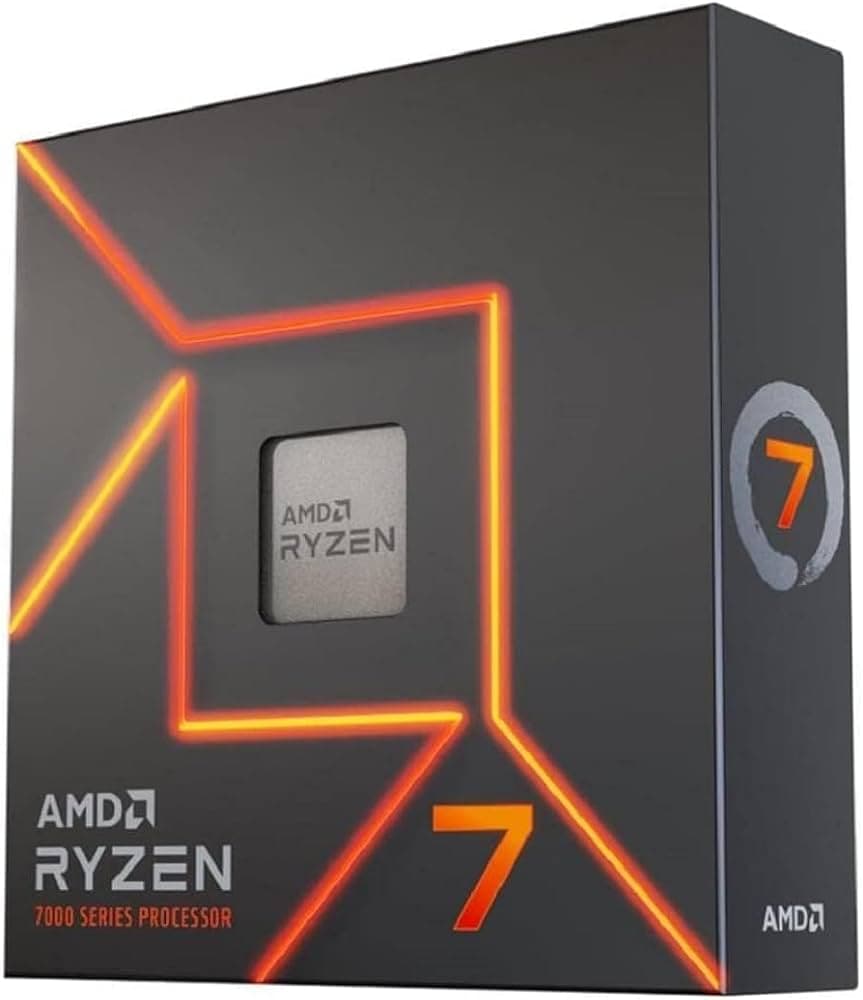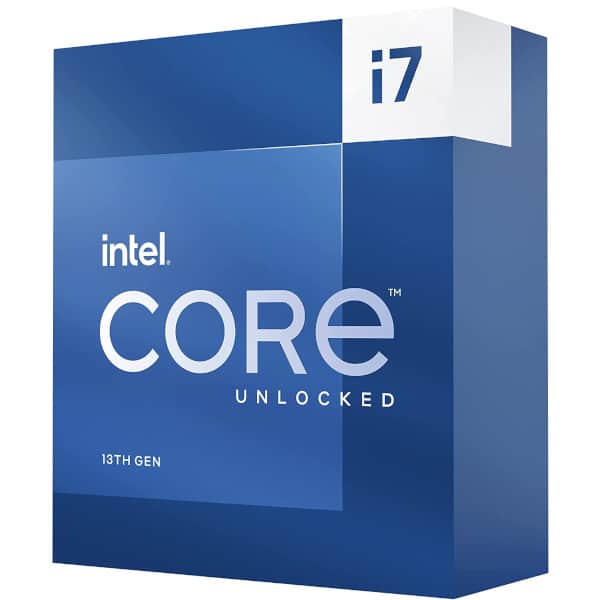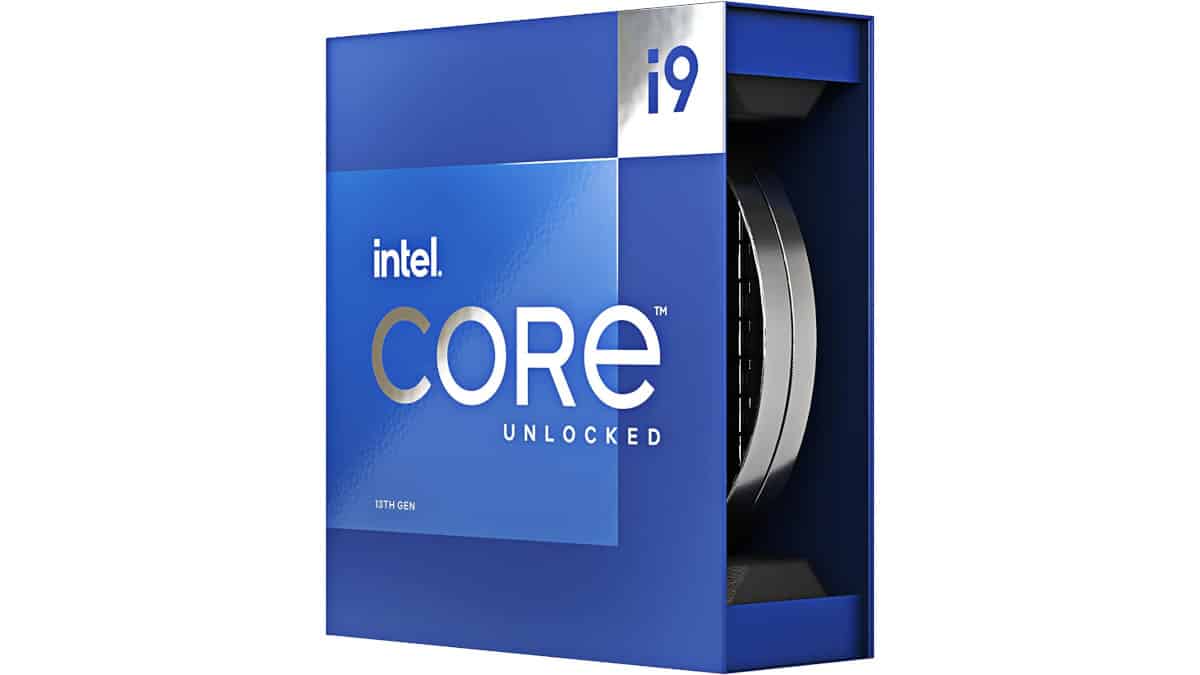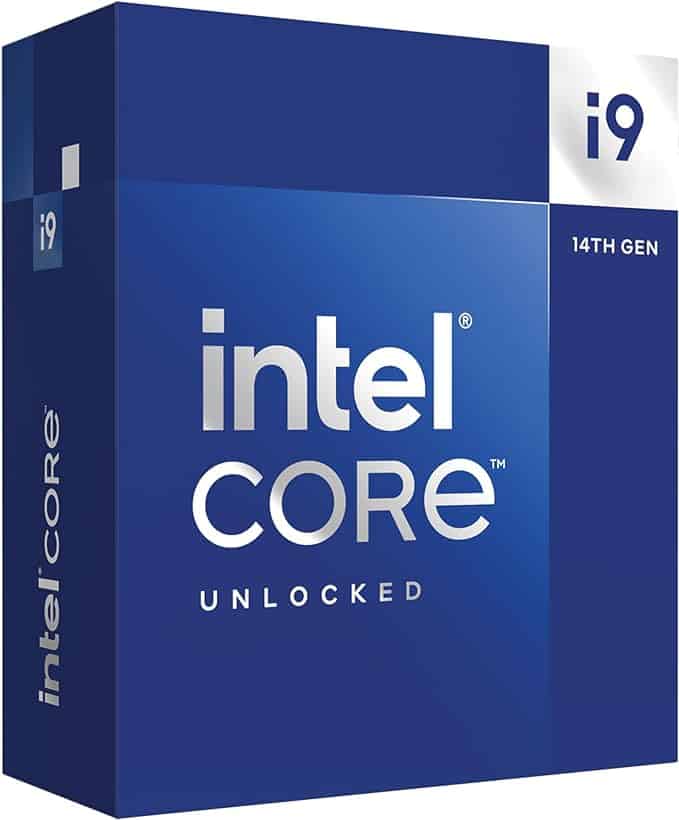Ryzen 7 9700X vs. Ryzen 9 7950X: Zen 4 powerhouse against Zen 5 mid-range, who wins?

Table of Contents
The mid-range Ryzen 7 9700X has now launched and is available for purchase on Amazon. We also have got our review of the 9700X if you want to find out what it’s capable of. Which can help evaluate what its capabilities are and how the 9700X vs 7950X compare.
AMD claims that the Ryzen 9000 processors have a 16% IPC uplift over Zen 4 CPUs, which begs the question: will a mid-range 9000 CPU be able to hold its own against the most powerful Zen 4 processor, the Ryzen 9 7950X?
In this article, we'll compare these two processors to see which one wins. If you want to get your hands on the 9700X before the bots clear the shelves, our Where to Buy 9700X page has your back with a list of all the retailers where you can purchase it, saving you time and effort.
AMD Ryzen 7 9700X
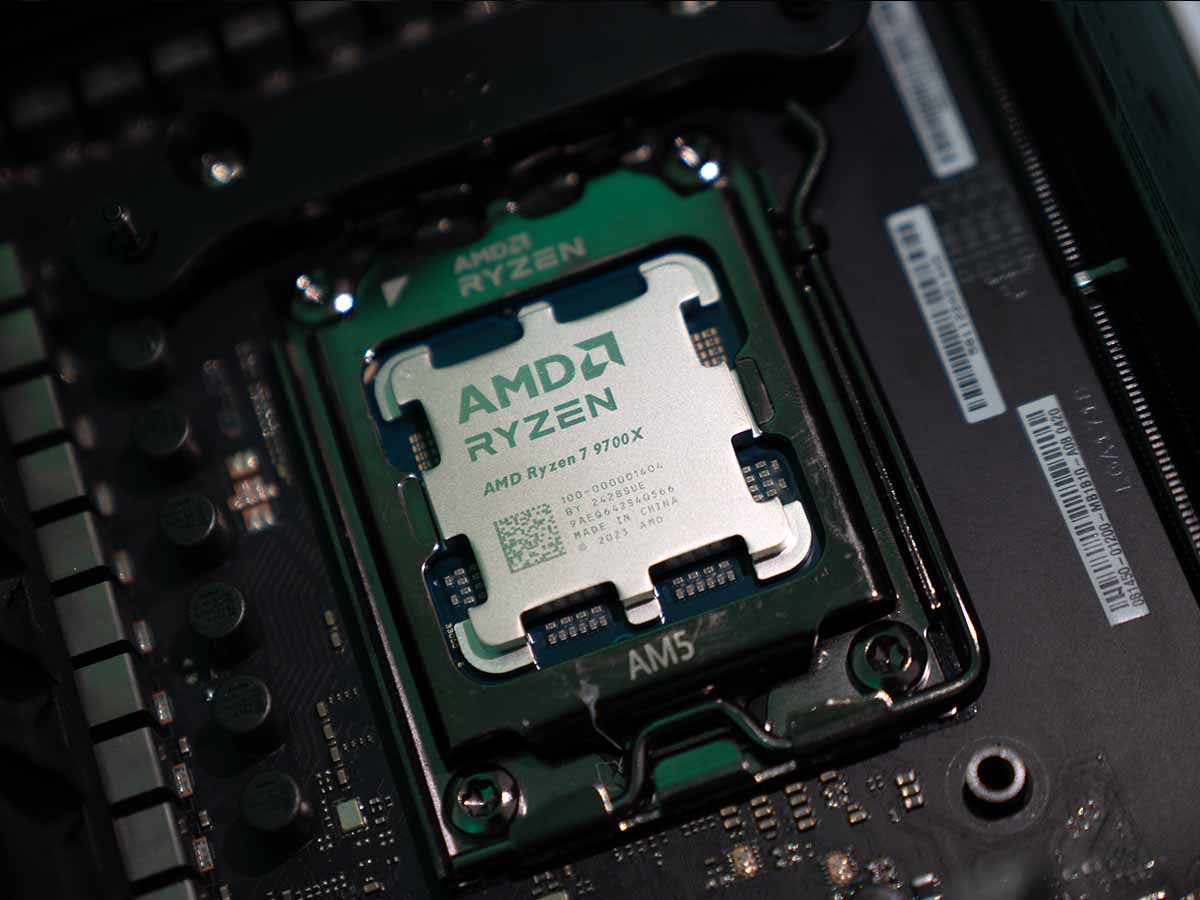
Cores
8
Threads
16
Boost clock speed
5.5 GHz
Base clock speed
3.8 GHz
L3 Cache
32 MB
TDP
65 W
Platform
AMD Socket AM5
Shop on Amazon
CHECK PRICEAMD Ryzen 9 7950X
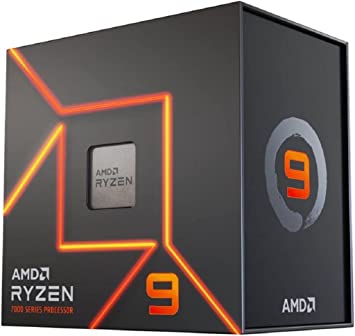
Cores
16
Threads
32
Boost clock speed
5.7 GHz
Base clock speed
4.5 GHz
L3 Cache
64 MB
TDP
170W
Platform
AMD Socket AM5
Shop on Amazon
CHECK PRICESpecifications
To see the hardware difference between the two processors, we've listed their specifications below.
| Specifications | Ryzen 9 9700X | Ryzen 9 7950X |
| Architecture | Zen 5 | Zen 4 |
| Socket | AM5 | AM5 |
| Process | TSMC 4nm FinFET | TSMC 5nm FinFET |
| Cores | 8 | 16 |
| Threads | 16 | 32 |
| Base clock speed | 3.8 GHz | 4.5 GHz |
| Boost clock speed | 5.5 GHz | 5.7 GHz |
| L3 Cache | 32 MB | 64 MB |
| TDP | 65W | 170W |
| Integrated graphics | AMD Radeon Graphics | AMD Radeon Graphics |
From a glance, we can see the difference we'd expect to see between Ryzen 7 and 9 processors. The 7950X has better specifications than the 9700X, but will that be enough to triumph over the Zen 5 architecture? Let's find out.

Foundations and cores
The foundation of these two CPUs is different as they are based on different architectures. The 9700X has the Zen 5 architecture powering it, while the 7950X is based on the Zen 4 architecture. The difference is that the Zen 5 has 4nm CPU process technology while the 7950X has 5nm.

The 1nm size difference seems minute, but that means more transistors can fit on each CPU core, significantly increasing the performance and efficiency of the processor. The 7950X has a transistor count of 13,140 million with 5nm processes but has eight more cores. That said, even if the 9700X has a lower or equal thread count, they'd be more efficient and able to execute more instructions per second.
On top of that, the 7950X has 16 more threads than the 9700X, and while both CPUs have multithreading, the 7950X should do better in handling heavier workloads than the 9700X, such as being installed in a server or workstation.
Clock speed
When it comes to clock speeds, the 7950X beats the 9700X by a significant margin. It has a 0.7 GHz faster base clock speed and a 0.2 GHz faster boost clock speed, which means it can execute 0.7 and 0.2 billion more instructions than the 9700X.
That said, the 16% IPC increment of the Zen 5 architecture should help the 9700X decrease the performance gap, but the 7950X should still outperform it due to its sheer hardware advantage. You also have the option to overclock these processors for better processing, which also ramps up the thermal output and power draw, and the 7950X already has a 170W TDP. We recommend using the best CPU cooler to keep either of these chips running cool and performing optimally.
Cache and TDP
There is a huge difference between the cache and the TDP of the 9700X and the 7950X. The latter has twice the L3 cache of the former, while the 9700X consumes a whopping 105W less than the 7000 series flagship.
That said, the Ryzen 9000 processors received a boost to their L1 and L2 cache, significantly increasing their performance by doubling the bandwidth. As for the L3 cache, 64 MB is obviously able to hold more data than 32 MB, so it should be able to get more work done, but the change on a fundamental level in the 9700X could mean that the difference could be more neck-and-neck that we expect.
The 9700X’s 65W TDP is a massive win for it. This is courtesy of the 4nm processes, which consume less energy, making the CPU more energy-efficient while delivering a massive increase in performance over its predecessor. The same concept applies to the 7950X, which has 5nm processes and more cores. This means it most likely has a higher transistor count, which requires more power to operate, hence the 170W TDP.
One thing to note is that the TDP isn't a set value and can fluctuate depending on the workload. Given that the 7950X is a powerhouse and made to handle workstation-level tasks, it'll be under heavy loads, which could mean a higher TDP than advertised. We recommend using the best thermal paste to ensure efficient heat transfer and dissipation, keeping the processor cool.
Graphic capabilities
The Ryzen 7 9700X and Ryzen 9 7950X come with integrated graphics, which opens up a world of opportunities, such as troubleshooting and booting your PC without a discrete GPU. The Ryzen 7000 series iGPU are RDNA-2 based, while the 9000 series have the RDNA-3 architecture.
To put things into perspective, we'll look at what our fellows at WePC found while testing the 7900X’s iGPU. It delivered 131 FPS in CS:GO at 1080p high preset, meaning you'd be able to game without needing a desktop GPU. So, we can expect even better performance from the 9700X's integrated graphics. However, a discrete GPU is preferred for the best gaming performance, and we recommend the best GPU for 7950X.
9700X and 7950X prices
The Ryzen 9 7950X was launched with an MRSP of $699, and according to Camelcamelcamel, you can get it for $539.98, $159.02 cheaper. As for the Ryzen 7 9700X, it has a price tag of $359, which is $40 cheaper on launch than the 7700X.
How have these CPUs changed from the previous generations?
We'll compare the 9700X with the 7700X and the 7950X with the 5950X. This should give us a good idea of how much improvement the processes have had from generation to generation.
| Specifications | 9700X | 7700X | 7950X | 5950X |
| Cores | 8 | 8 | 16 | 16 |
| Threads | 16 | 16 | 32 | 32 |
| Cache | 32 MB | 32 MB | 64 MB | 64 MB |
| Max boost clock | 5.5 GHz | 5.4 GHz | 5.7 GHz | 4.9 GHz |
| Base clock speed | 3.8 GHz | 4.5 GHz | 4.5 GHz | 3.4 GHz |
| TDP | 65W | 105W | 170W | 105W |
| Architecture | Zen 5 | Zen 4 | Zen 4 | Zen 3 |
The core count, thread count, and cache of both CPUs are the same as their predecessors. The biggest differences between these four processors are the clock speed, TDP, and, most importantly, the architecture.
The 7950X has the highest max boost clock while sharing its base clock speed with the 7700X. That said, the 9700X has the lowest TDP and the newest architecture, providing an excellent balance between performance and energy efficiency.
Alternatives to the 9700X and the 7950X
There are some processors that you could opt for instead of the 7900X and the 7950X, and we've listed them below. We've reviewed some of these alternative options, and you can also check out their in-depth reviews.
-
AMD Ryzen 9 7900X
- Cores: 12
- Threads : 24
- Boost clock speed: 5.6 GHz
- Base clock speed: 4.7 GHz
- L3 Cache: 64 MB
- TDP: 170 W
-
AMD Ryzen 9 7900X3D
- Cores: 12
- Threads: 24
- Boost clock speed: 5.6 GHz
- Base clock speed: 4.4 GHz
- L3 Cache: 128MB
- TDP: 120W
-
AMD Ryzen 7 7700X
- Cores: 8
- Threads: 16
- Boost clock speed: 5.4 GHz
- Base clock speed: 4.5 GHz
- L3 Cache: 32 MB
- TDP: 105W
-
Intel Core i7-13700K
- Cores: 16
- Threads: 24
- Platform: Raptor Lake-S
- Base Clock Speed: 100 MHz
- Boost Clock Speed: 5.4 GHz
- L3 Cache: 30 MB (shared)
-
Intel Core i9-13900K
- Cores: 24 (8P-16E)
- Threads: 32
- Boost speed : P-Core 5.8GHz / E-Core 4.3GHz
- Base speed: P-Core 3.0GHz / E-Core 2.2GHz
- L3 Cache: 36 MB
- TDP: 253 W
-
Intel Core i9-14900K
- Cores: 24 (8P-16E)
- Threads: 32
- Boost clock speed : P-Core 5.8GHz / E-Core 4.4GHz
- Base clock speed: P-Core 3.2GHz / E-Core 2.4GHz
- L3 Cache: 36 MB
- TDP: 253W
Which one is right for you?
This question has no set answer as it depends on several factors, such as your budget and use case. Both processors use the AM5 socket, meaning they can take full advantage of next-gen components like DDR5 RAM and PCIe Gen 5.0 SSD.
The big factor differentiating them is their architecture. The 9700X is based on the new Zen 5, but the 7950X has more buffed-up specifications and is on the Zen 4 architecture. However, it is still a beast and should blow through whatever you put in front of it, whether gaming or crunching large data sets to train machine-learning models.
That said, while we don't know the official price of the 9700X, I assume that the 7950X would still cost more. So, if you're on the AM4 platform and want to shift to the AM5 platform, the 9700X's mid-range excellence should provide a good opportunity.
The 7950X is more for people who have to work with resource-intensive applications daily, while the 9700X provides a sweet spot with its energy-efficient TDP and IPC uplift for gaming and professional workloads without breaking the bank. Regardless of the processor you get, you shouldn't be disappointed with its performance.


